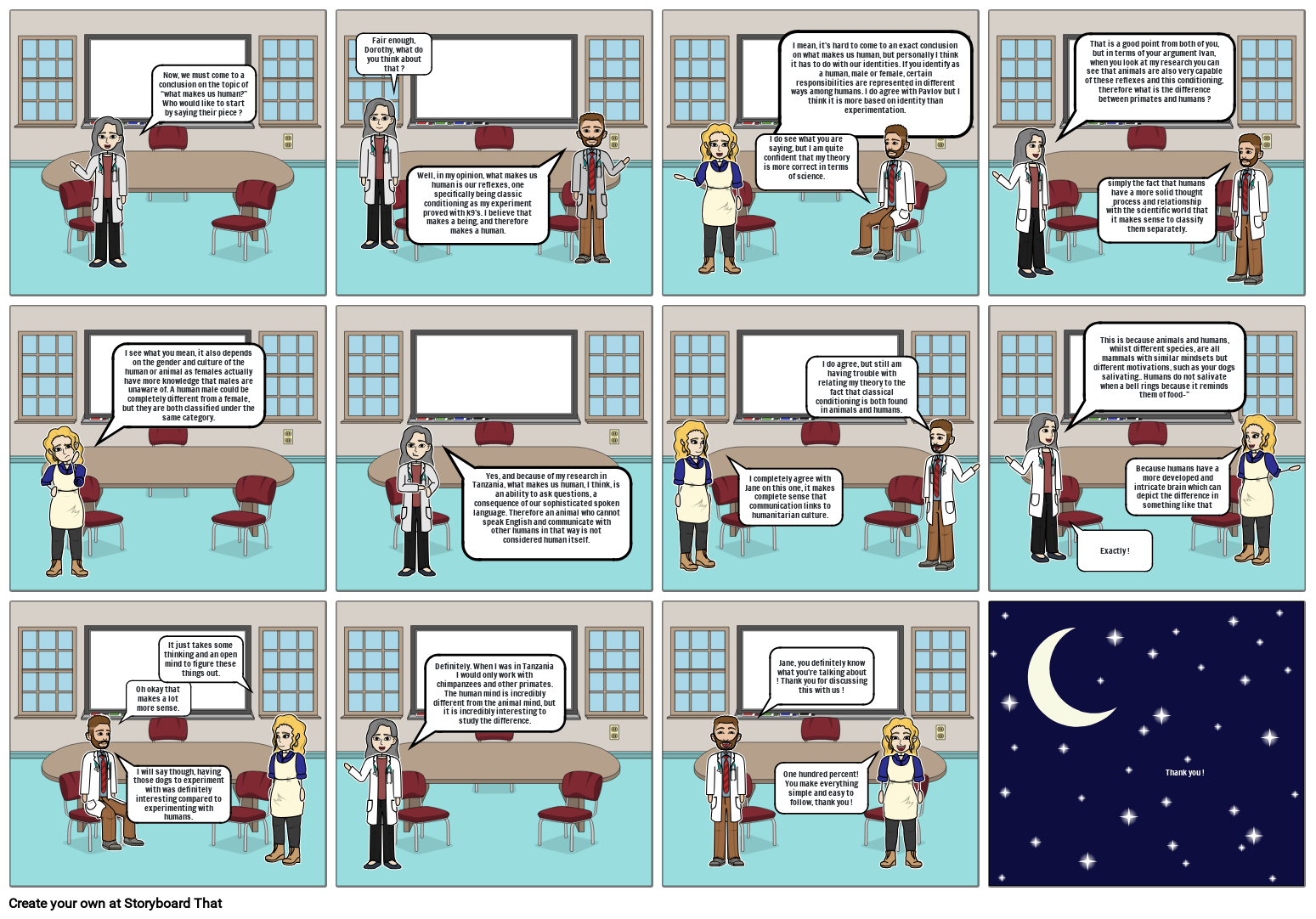
Montāžas Teksta
- Slidkalniņš: 1
- Now, we must come to a conclusion on the topic of “what makes us human?” Who would like to start by saying their piece ?
- Slidkalniņš: 2
- Fair enough, Dorothy, what do you think about that ?
- Well, in my opinion, what makes us human is our reflexes, one specifically being classic conditioning as my experiment proved with k9’s. I believe that makes a being, and therefore makes a human.
- Slidkalniņš: 3
- I mean, it’s hard to come to an exact conclusion on what makes us human, but personally I think it has to do with our identities. If you identify as a human, male or female, certain responsibilities are represented in different ways among humans. I do agree with Pavlov but I think it is more based on identity than experimentation.
- I do see what you are saying, but I am quite confident that my theory is more correct in terms of science.
- Slidkalniņš: 4
- That is a good point from both of you, but in terms of your argument Ivan, when you look at my research you can see that animals are also very capable of these reflexes and this conditioning, therefore what is the difference between primates and humans ?
- simply the fact that humans have a more solid thought process and relationship with the scientific world that it makes sense to classify them separately.
- Slidkalniņš: 5
- I see what you mean, it also depends on the gender and culture of the human or animal as females actually have more knowledge that males are unaware of. A human male could be completely different from a female, but they are both classified under the same category.
- Slidkalniņš: 6
- Yes, and because of my research in Tanzania, what makes us human, I think, is an ability to ask questions, a consequence of our sophisticated spoken language. Therefore an animal who cannot speak English and communicate with other humans in that way is not considered human itself.
- Slidkalniņš: 7
- I do agree, but still am having trouble with relating my theory to the fact that classical conditioning is both found in animals and humans.
- I completely agree with Jane on this one, it makes complete sense that communication links to humanitarian culture.
- Slidkalniņš: 8
- This is because animals and humans, whilst different species, are all mammals with similar mindsets but different motivations, such as your dogs salivating.. Humans do not salivate when a bell rings because it reminds them of food-”
- Because humans have a more developed and intricate brain which can depict the difference in something like that
- Exactly !
- Slidkalniņš: 9
- It just takes some thinking and an open mind to figure these things out.
- Oh okay that makes a lot more sense.
- I will say though, having those dogs to experiment with was definitely interesting compared to experimenting with humans.
- Slidkalniņš: 10
- Definitely. When I was in Tanzania I would only work with chimpanzees and other primates. The human mind is incredibly different from the animal mind, but it is incredibly interesting to study the difference.
- Slidkalniņš: 11
- Jane, you definitely know what you're talking about ! Thank you for discussing this with us !
- One hundred percent! You make everything simple and easy to follow, thank you !
- Slidkalniņš: 12
- Thank you !
Izveidoti vairāk nekā 30 miljoni stāstu shēmu

